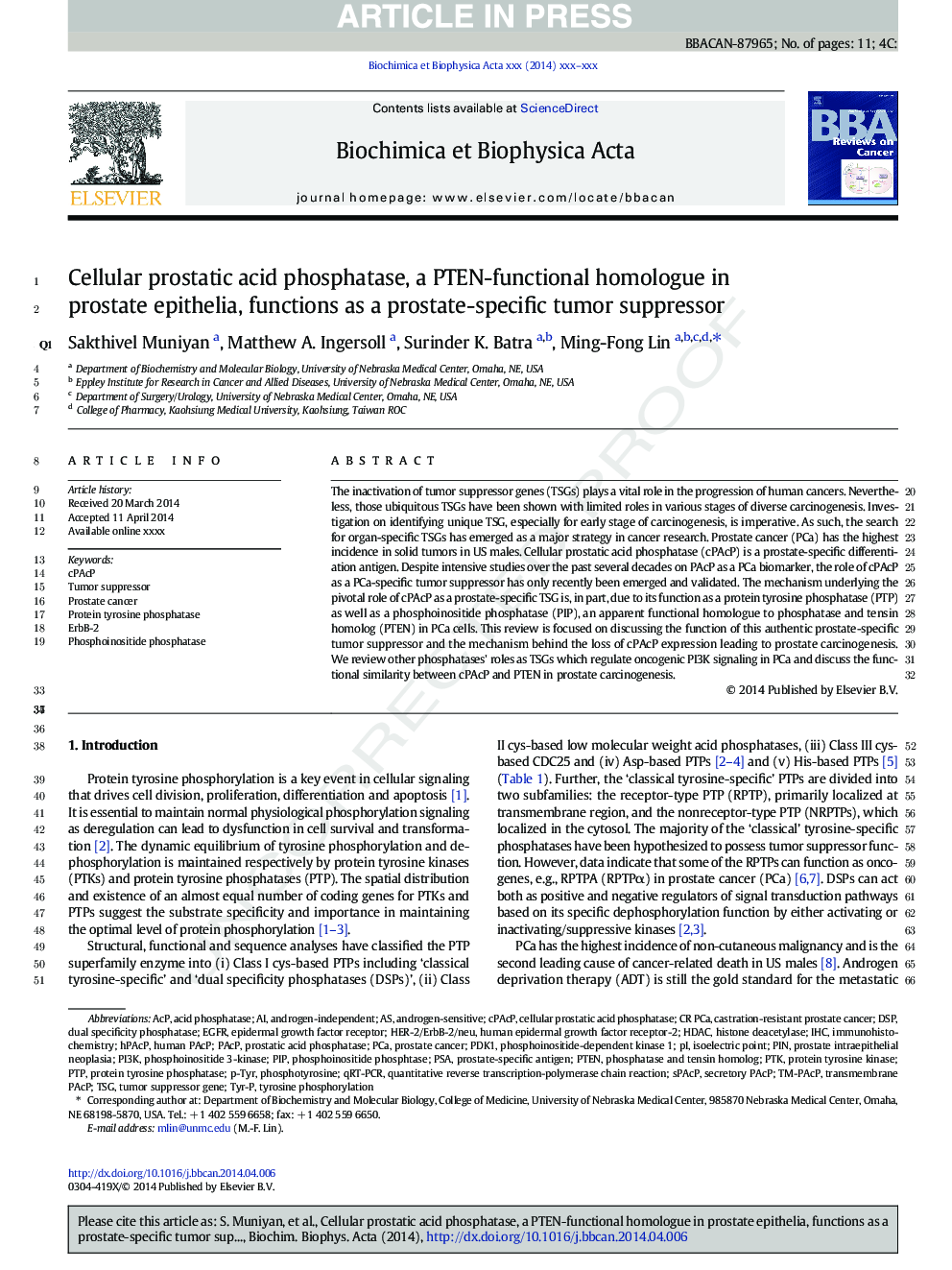| Article ID | Journal | Published Year | Pages | File Type |
|---|---|---|---|---|
| 10895591 | Biochimica et Biophysica Acta (BBA) - Reviews on Cancer | 2014 | 11 Pages |
Abstract
The inactivation of tumor suppressor genes (TSGs) plays a vital role in the progression of human cancers. Nevertheless, those ubiquitous TSGs have been shown with limited roles in various stages of diverse carcinogenesis. Investigation on identifying unique TSG, especially for early stage of carcinogenesis, is imperative. As such, the search for organ-specific TSGs has emerged as a major strategy in cancer research. Prostate cancer (PCa) has the highest incidence in solid tumors in US males. Cellular prostatic acid phosphatase (cPAcP) is a prostate-specific differentiation antigen. Despite intensive studies over the past several decades on PAcP as a PCa biomarker, the role of cPAcP as a PCa-specific tumor suppressor has only recently been emerged and validated. The mechanism underlying the pivotal role of cPAcP as a prostate-specific TSG is, in part, due to its function as a protein tyrosine phosphatase (PTP) as well as a phosphoinositide phosphatase (PIP), an apparent functional homologue to phosphatase and tensin homolog (PTEN) in PCa cells. This review is focused on discussing the function of this authentic prostate-specific tumor suppressor and the mechanism behind the loss of cPAcP expression leading to prostate carcinogenesis. We review other phosphatases' roles as TSGs which regulate oncogenic PI3K signaling in PCa and discuss the functional similarity between cPAcP and PTEN in prostate carcinogenesis.
Keywords
DSPPDK1TSGErbB-2PTPqRT-PCRHDACACPPTKPSAPI3KP-TyrEGFRPCAandrogen-independentacid phosphataseIHCImmunohistochemistrydual specificity phosphataseProstate cancerCastration-resistant prostate cancerTumor suppressorphosphatase and tensin homologphosphotyrosineTyrosine phosphorylationphosphoinositide 3-kinaseProstate intraepithelial neoplasiaIsoelectric pointhistone deacetylasephosphoinositide-dependent kinase 1quantitative reverse transcription-polymerase chain reactionprostate-specific antigenProtein tyrosine phosphataseProtein tyrosine kinaseProstatic acid phosphatasePINPiPPtenTumor suppressor geneEpidermal growth factor receptorHuman epidermal growth factor receptor-2
Related Topics
Life Sciences
Biochemistry, Genetics and Molecular Biology
Cancer Research
Authors
Sakthivel Muniyan, Matthew A. Ingersoll, Surinder K. Batra, Ming-Fong Lin,
